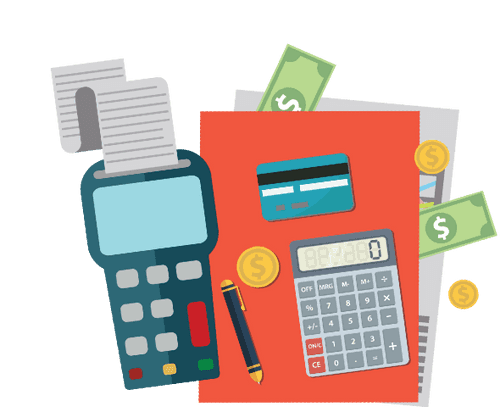A special guest post from your friends at Epilogue.
Just bought your first home? First off, congratulations! Your head is probably buzzing with the excitement of what’s likely the single largest investment you’ll ever make. So, what’s next?
You likely have a myriad of things on your mind from property tax to paint colours (and everything in between), but there is something else that should be top of mind. Making or updating your Will.
Having a legal, up-to-date Last Will and Testament (also referred to as your “Will”) is the only way to legally record your wishes in terms of what happens to your estate after you pass away, including your brand new home.
4 reasons new homeowners should make or update their Will
If you own your home by yourself, a Will is absolutely essential. It’s the only way to legally determine what happens to your home (and everything inside of it) after you pass away.
If you own your home with one or more people, how things play out will depend on the nature of ownership. There are two possibilities here:
Joint-ownership: Full ownership of the home automatically passes to other owner(s). In this case, a Will isn’t necessary for the purpose of your home but will be important for other assets you own outright.
Tenants in common: In this case, only your portion of the home is added to your estate. When you own a home as a tenant-in-common, a Will is important so you can decide who inherits your interest in the home after you die. You may wish that the survivor(s) – the other owner(s) of the home – get your share, or you may prefer to pass it on to another beneficiary.
Now that we have the specifics out of the way, here are some other reasons why a Will is essential for new homeowners.
You get to decide who inherits your home if you die
Having a Will gives you control over what happens to your property if you’re no longer around to manage it. If you die without a Will (also referred to as “dying intestate”), you lose control of what happens to your property, and provincial law dictates what happens next.
For example, if you own a home as a “tenant in common” with one or more people, only your portion of the home goes to your estate. The estate is then divided according to the Will. In the absence of a Will, it gets distributed according to the intestacy laws.
It can also get just as messy if you own the home outright and pass away without a Will.
For example, under the intestacy rules of Ontario, if you have a spouse and kids, your spouse will receive the first $200,000 of value and the remainder of the estate will be divided as such: 1/3 to spouse and 2/3 split between the kids.
In this example, if the house is the only (or largest) asset of the estate, the executor may need to force a sale of the home in order to give each the share they are entitled to. Seem stressful, right?
When you have a Will, you can help your executor and family avoid this kind of stress. After all, this will be a difficult time.
When you create a Will, you can name a beneficiary to inherit your home and have peace of mind knowing who will have control of your home after you pass away. You can also name someone for the right of first refusal to buy the home.
Protect your common-law partner and children
In some provinces, like Ontario, common-law partners aren’t entitled to anything if you die intestate. Add kids to that scenario and the home could go directly to your children, bypassing your common-law partner entirely. Not an ideal situation!
If you have a common-law partner, like at least one fifth of Canadian couples, it’s important to have a Will in place to ensure they inherit whatever portion of your estate you wish.
When a home is solely owned by the deceased, it forms part of the estate. Having a Will in place gives you the control to determine which beneficiary gets your home. If you have minor children, you also have the option of leaving the home in a trust. This way, they can inherit it when they reach the age of majority (or any age specified in your Will.)
Without a Will, you lose the control to do any of the above.
Safeguard your personal property
A Will protects your money and assets, including things like your property. But, what do you do after you buy a home—you fill it with personal belongings like furniture, art, fine china and more. All of these things form part of your estate and are referred to as “personal property.” Having a Will is the only way you get to decide who gets what.
If you die intestate, provincial intestacy laws dictate how your estate is distributed. Every province is different, but most share the same general characteristics:
A spouse but no children: Your spouse inherits your entire estate.
No spouse and no children: Your parents inherit your entire estate.
A spouse and children: Your spouse inherits a specific portion of your estate, and your children share the remainder. The rules on proportions vary by province and size of estate.
No spouse but some children: Your children share your estate equally.
No spouse, children, nor parents: Your siblings share your estate equally. If you have no siblings, your nieces and nephews split your estate.
Reduce financial stress for your loved ones
If there is no Will when a person passes away, the estate has to go through the probate court process. This can be a time-consuming and costly process, causing a delay in the ability of your family members to access your bank accounts and administer your estate.
Not having access to your accounts causes many issues including continuing payments on home-related assets like your mortgage. Plus, your home can’t transfer to anyone until someone is named as an estate trustee (executor).
By making a Will, you can name an executor to handle the distribution of your assets, including your home. It’s also the executors job to pay off your debts. When you appoint an executor in your Will, you have the luxury of time. Time to have important discussion around how you want your debt handled while you’re still alive.
Remember, your executor is likely still grieving as well. So, having to make big decisions during a time of grief puts a lot of unnecessary stress on an already stressful situation.
The epilogue
Once the ink has dried on your deed, you should make a Will or update your existing one to include details on how you want your home handled if you pass away.
Buying a new home is just one life milestone that warrants updating your Will. You should consider making or updating a Will if you:
Have a new child
Get married
Get separated or divorced
Get a new pet
Purchase a large asset
Receive a large inheritance
Making a Will may seem like a daunting task, but it doesn’t have to be. Making a basic Will has never been easier! You can make a Will online these days in about 20 minutes, from the comfort of your (new) home.
They say hindsight is 2020, but when it comes to your legacy, there’s no such thing as hindsight. It’s best to think ahead now to ensure the protection of your loved ones in the future.
This is a guest post by Epilogue, Canada’s first online Will platform founded by lawyers. Epilogue offers Canadians a simple, fast and affordable way to make a Will online—minus the legal jargon.







